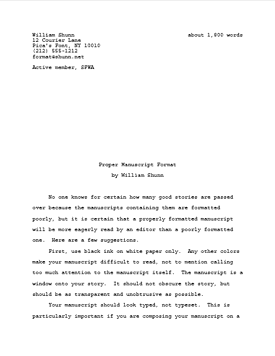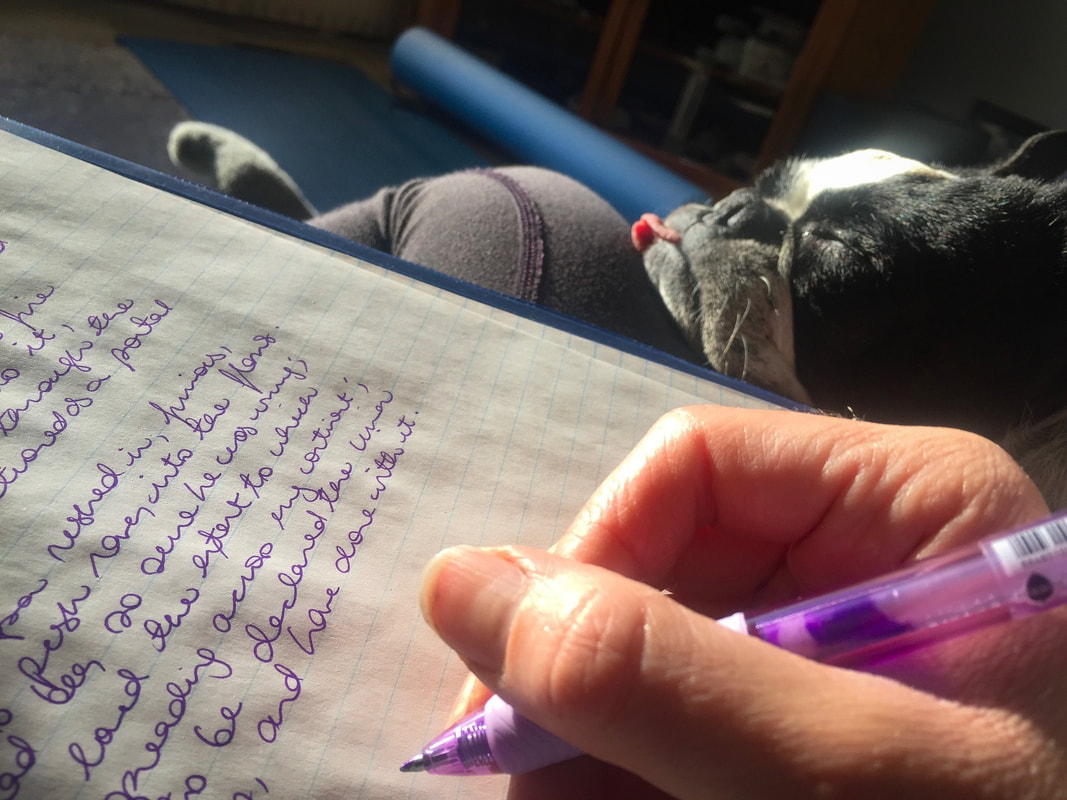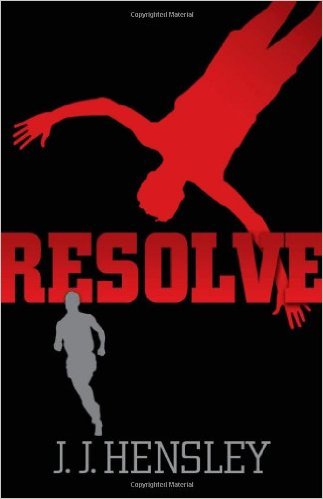|
When I was a kid, I had a lot of dreams. Mostly about what I wanted to do when I grew up. I dreamed of being a scientist when I got a microscope for Christmas. I dreamed of being a singer when I did my chores (singing all the while). I dreamed of being a figure ice skater even though I had never been ice skating (it was beautiful and looked fun). I played school (teacher) and office (secretary) and family (mommy). Between every new dream, I always came back to my #1 dream: to be a writer!
At some point, I dreamed of running a marathon. I have now run two! (Gonna run an ultra when I turn 50!) I now have two published books. I also teach other writers how to write novels. And while I’m basically living my dreams, at some point I realized I wouldn’t have reached any of them if I didn’t know how to read. My new dream is a big one that I’ll never be able to reach all by myself: end world illiteracy. The U.S. statistics alone are utterly shocking. The number one challenge writers face is learning the craft. The number two challenge is how to revise and edit your novel, but revising doesn’t have to be hard. If you’ve written the first draft, spend an entire week celebrating. That’s a huge accomplishment! You just overcame the third biggest writing challenge: finishing your first draft.
But don’t start submitting your work just yet, you need to revise your story so it shines and editors will want to publish it. Let’s talk about three ways you can revise your novel. Start Revisions by Looking at Plot Whenever I’m helping other writers revise their novels, we always start with plot. Whether you’re writing your first draft, or you’re starting the revision process, knowing your five main plot points will help you create a stronger plot and a better story. Revision can - in a sense - happen before you ever write your first word. Which is why creating a plot outline before you write helps cut down on your revision timeline. If your plot points aren’t identified correctly, your pacing will be off. Being able to know which plot points are most important and where to properly place them will help you avoid a slow start and a saggy middle. For example, the most important scene for the middle of your novel should show up in the middle. But if the scene you have that shows up in the middle is your two characters leaving the ranch, when it really needs to be when they finally reach the canyon, then you’ll have to revise – or rearrange – your plot points so that your character motivations, pacing, and storyline flows better and makes more sense. So start all your revisions by looking at your novel’s plot points first. And revise accordingly. Not all critiques are the same. Sure, it’s one person’s feedback – their opinions, thoughts, and suggestions, ideas to make your writing better and your story stronger. But what if you disagree? What if you don’t know how to take their advice? Or if you even should? How do you implement feedback from lots of people? Getting a manuscript critique is an essential part of being a writer. Good critique partners for a writer is like a running coach for a runner. In a word? Transformational!
Things to Consider When Getting a Critique I’ve shared how to give a good critique and how to overcome the fear of getting a critique, so now let’s talk about once you have a critique, how do you take the feedback and put it to good use? There are two major things to consider.
While the best critiques will come from other writers who write in the same genre as you, the same is true of those who have a similar level of writing experience (or better) as you. I have given and received hundreds of critiques and while all levels of experience are valued and provide fresh perspectives, the times I have grown the most are when the people giving me critiques have had more experience or were further along the writing journey than I was. The Purpose of a Manuscript Critique Often, writers seek feedback on their work to see how good their writing is. But the real reason you should get a critique is to learn how to become better. That only happens when people point out your faults and weaknesses. So if you want a good critique, be prepared to hear some harsh (not hateful) feedback in the process. More on that later. For now, let’s talk about the real purpose of getting feedback on your manuscripts. How does it help you become a better writer?
Secondly, manuscript critiques should provide encouragement. This doesn’t mean that every word should be a glowing review of your language prowess. On the contrary, it means that they mix positive and negative feedback and cheer you on to keep going. Their words encourage you to work through your story’s problems and work to make it better. A critique should never berate you, belittle you, put you down, or say hateful things to you. Negative feedback can also lift you up when delivered with a little bit of encouragement Learning how to write fiction is different from learning how to write academically such as essays, research papers, or book reports. Fiction requires superb storytelling skills. There are three main ways to learn the craft of writing fiction: studying the craft from experts, getting your work critiqued, and attending writing conferences and retreats.
What is the Writing Craft? Just what does it mean to study the craft of writing anyway? There are many ways you could answer this question. One dictionary definition goes like this: Writing Craft - n. “the artistic skill or technique with which an author puts together narrative and other elements in order to convey meaning.” Let’s get more specific. The writing craft consists of basic elements to help make your story readable and have meaning. It consists of such strategies as characterization, conflict, plot, dialogue, tension, backstory, theme, pacing, tone, voice, setting, point of view, and more. These are the narrative storytelling elements that make your writing flow and make sense to a reader. One way to learn the writing craft is to jump in and figure it out. Just write. Keep practicing. You’ll get there eventually. But there are better ways. Study the Craft of Writing From ExpertsExperts in the literary industry include published authors, editors, and book coaches. They can teach us a lot about how to write fiction. All we have to do is consume their information, usually in the form of books, workshops, or courses. So when you have an opportunity to buy a book you think will help you, or attend a workshop or take a course from a writer you admire, do it! Other tips to become a better fiction writer and practice the craft include the following:
If you’re reading, writing, and studying about writing, you will continue to get better. And when it comes to your writing craft, that’s always the goal. Since 2010, I have been blogging over at www.christiewrightwild.blogspot.com. It started out as a personal journal for my writing. It has morphed several times over the years focusing on different things such as picture books, websites for authors, and of course my own publication journey.
It's time for Writers Who Run to get its own blog. So here we are! Every Monday, a new blog post will be published. Topics will always be focused on our four pillars for content. And of course, when I'm talking about productivity or mindset, it usually also applies to both writing and running. Which pillar are you most excited to learn more about? Let us know over on the Writers Who Run Facebook page. If you’re not the type of writer who writes every day, then you’re probably looking for ways to motivate yourself to write more often, write more consistently, and keep the momentum going once you do write.
I actually don’t recommend writing daily. I don’t run every day either. These passions practically require rest days. Rest days for running might look like going for a walk, swimming, playing volleyball, riding a bike, or doing yoga. Rest days for your writing might look like creating a character sketch, researching details for your setting, or brainstorming title ideas. The bad thing that sometimes happens is our rest days turn into a week, a month, a year, or even a decade of NO WRITING. That’s where motivation and momentum come into play. How do you get back to your writing and keep the momentum going? Motivation vs. Momentum When it comes to motivation and momentum, it helps to define the terms. Motivation is the inspiration and the why behind an action. It’s the positive feeling that helps push you out of inaction, which is often part of your safe comfort zone, and into action, which is sometimes uncomfortable or even scary. But it’s the action that gets results. Momentum is the action. Motivation is what you want. Momentum is how you get there. Momentum is the force that keeps you going until you reach your desired result. Momentum is showing up for your training runs each day of the week so you can finish the race with a good time. It may seem as though motivation comes first. And usually it does. But think about this: which comes first, the chicken or the egg? When we move closer to our goals, we tend to feel a sense of accomplishment. This, in turn, creates a feeling of motivation. Thus, our momentum also leads to more motivation to keep going, thus creating more momentum. It’s a really strong positive cycle when it’s activated. Why is Momentum So Important? While motivation is what gets you started, momentum is even more important. The first step to running a race is to sign up or register for it. Then you train. Then on race day, you cross the starting line and put one foot in front of the other until you cross the finish line. While running the race, you gain momentum. You might get faster or stronger as time goes on. Even when you hit the wall, you’re getting closer and closer to the finish line, and you become less likely to stop. Momentum creates habits that bring you closer to your goals. Momentum is a key component for success. It’s almost another way to define persistence. So keep writing until you can write THE END. Every time you switch your focus from your goal and allow yourself to get distracted or let your rest days go longer than a week, you lose a portion of the energy moving you forward. You lose momentum when you lose your focus. I majored in Creative Writing in college so I quickly got used to giving and receiving critiques without making them personal. But for a lot of writers, that’s a difficult thing to accomplish, especially in the beginning.
I have friends who have told me their horror stories: showing up for their first-ever in-person professional writing critique, only to retreat to their room and cry for hours. But they said as hard as it was to hear the feedback, the person giving it was absolutely correct. My friends’ eyes were opened to how much work they had to do and how much they had to learn about writing. It’s not so much about how to give a critique or how to implement someone else’s suggestions, but how to prepare mentally to receive one in the first place (or 21st place) so that you don’t take it personally. After all, writing is about the READER. The Importance of Getting a Critique Beta readers and critique partners are the lifelines to taking your writing to the next level. Without feedback on your manuscripts, it’s hard to see your blind spots. Do you need help with characterization, plot, setting, tense, verb choice, weak sentence structure, point of view, theme, voice? Getting a critique, or any kind of feedback (from another writer) is especially helpful in making your writing the best it can be. The reader needs to understand your story, poem, essay, or book in as few words as possible. And of course, when an editor gets a hold of your writing, there will be even more revision work to do. And you’ll be prepared for it. When you’re able to accept constructive criticism (i.e. a critique), you’ll experience the following benefits…
Prepare to Receive Writing Feedback Getting in the right mindset to receive feedback for your manuscript will help you incorporate the advice without taking it personally. Some feedback will resonate with you more than other comments. Remember that you don’t have to make every single change that is suggested to you. Knowing this makes it easier to hear the feedback without getting defensive. If you feel the need to explain yourself, don’t. To put it simply, your writing wasn’t clear. Revise your writing so it’s clear to the reader. Be aware of your emotional state and create a positive mindset. You can prepare to receive feedback by adopting the following mantras.
 Here is a list of our frequently asked questions - updated for the 2017 retreat. A few questions asked and answered:
More questions answered: What do I need to bring?
What is the deadline to get registered?
Is this retreat for a specific genre or a specific type of writer?
Is there a shuttle?
I don't normally run a lot. What do I need to know to be prepared?
What should I start doing now to be ready?
How do I submit my first two chapters?
What is standard manuscript formatting?
How will the roundtable groups work? If I write picture books, will I be placed in a group of writers who write adult fiction?
I've never critiqued someone else's writing before. How do I give a good critique?
Writers Who Run Race to NC for World's First Ever Retreat of its Kind
Writers will be racing to Fontana Dam, NC on August 3, 2016 to attend the world's only writing retreat that also incorporates running a race as part of the agenda. Space is limited to 32 participants who think of themselves as writers and runners (or walkers). The culminating event of the 5-day, 4-night writing retreat is a 10k trail race on Sunday August 7 through the Nantahala National Forest of the Great Smoky Mountains. The race is limited to 250 participants and is also open to walkers. The Writers Who Run (or Walk) Retreat combines the best of both worlds all in one trip, saving you time and money. One website visitor commented, "What an awesome concept. I cannot believe I've found this. It's like Goldilocks discovering just the right bed! Writing retreats are sedentary. Running retreats are exhausting. But this one sounds just right!" The retreat promises to be rejuvenating, educational, productive, and social. The 10k trail race isn't just a race. It's an inspirational journey including some of the most popular racing elements that attract runners: adventure, costumes, charity, and bling!
Writers Who Run was founded by Christie Wright Wild, a writer who realized that the only time she ever traveled was to go to a writing event or a running event. There's finally a solution where you can do both in the same trip!
|
Christie Wright Wild
Founder, Writers Who Run Creator, Plot Like a Novelist Books
My Dandelion Wish Journal: A 5-Year Guided Nature Journal
101 Fun Creative Writing Exercises: Become a Better Writer in 14 Minutes a Day Categories
All
Archives
October 2023
|










 RSS Feed
RSS Feed